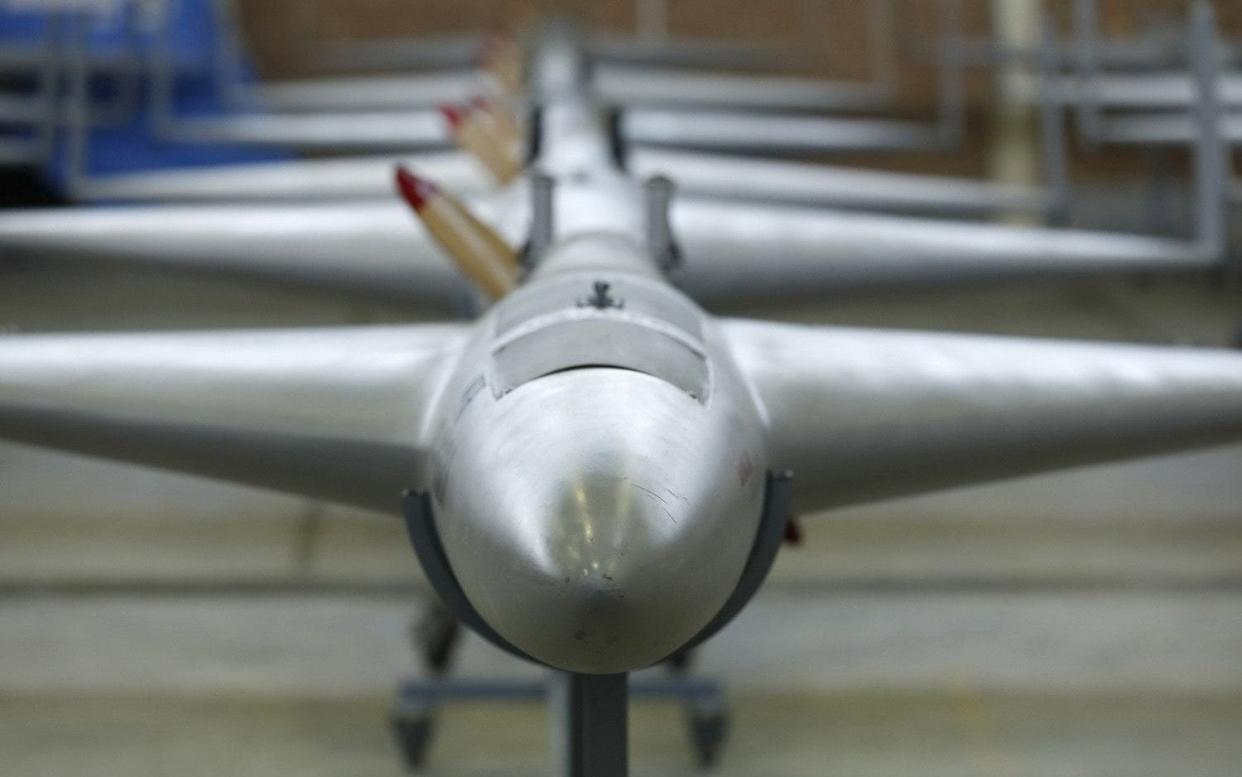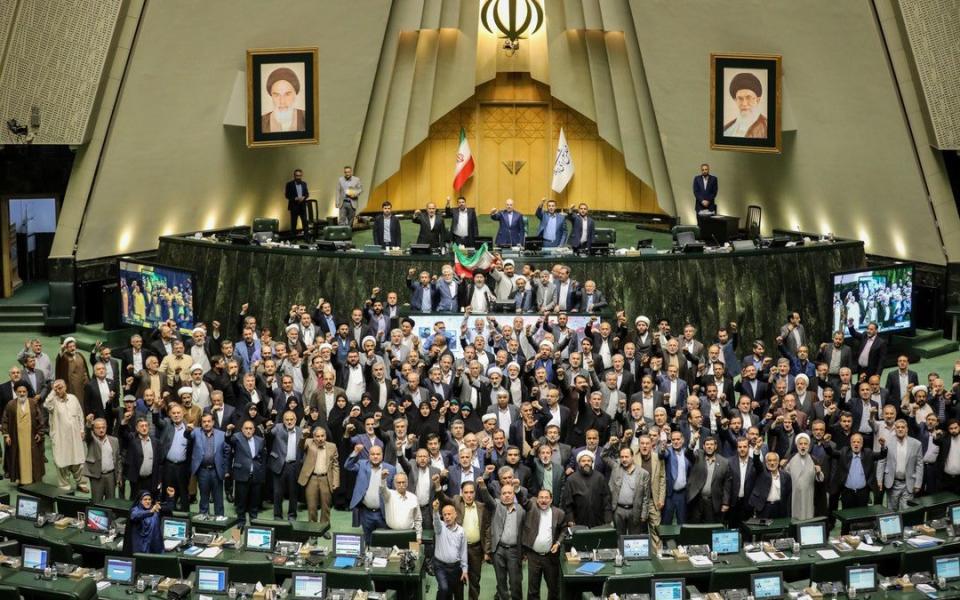Iran’s attack on Israel has thrown down the gauntlet to the West

Iran’s direct attack on Israel late on Saturday night is a high-stakes gamble of the worst possible kind.
The assault itself was well telegraphed in advance and – despite the large numbers of projectiles involved – was self-contained. This was not, it would seem, a nation hurling itself into all out war, or not yet.
If Tehran had really wanted to inflict massive damage on its arch enemy, there would have been no warning and Hezbollah, its proxy and ace card in the region, would have been ordered to launch a simultaneous blitzkrieg of its own from Lebanon.
The terrorist group, which makes Hamas look like a minnow, is thought to have more than 100,000 missiles pointed at Israel, a good proportion of which are precision guided.
Instead, Iran was sending a message: that it will no longer allow esteemed members of its Revolutionary Guard to be assassinated without direct reprisal.
The scale of the assault – involving more than 300 drones and missiles – also makes clear to Israel that it is reliant on US and other Western support for protection. Its Iron Dome air defence system is good but is still more than capable of being overwhelmed, it seems.
Iran’s attack also throws down the gauntlet to the West: should it risk all-out war in the region or might it be better trying to rein in Israel?
Finally, Iran is signalling to its own people that it is not impotent in the face of Israeli aggression. This is important for a regime that is struggling to maintain legitimacy at home in the face of a severe economic downturn and mounting civil unrest.
The mullahs will hope the drone swarm is just enough to demonstrate vigour without prompting a horrendous counter attack on Iran itself.
But preventing an escalation and all-out war is not going to be easy.
Iran’s UN mission said on Sunday that the attack was a legitimate act of self-defence under the UN charter and “the matter can be deemed concluded”.
Israel, on the other hand, characterised the Iranian action as a “major escalation” and was reported to have informed the US and other counties in the Middle East that it will have to respond.
There seems little doubt the West will try and prevent a counter attack but Israeli prime minister Benjamin Netanyahu is not a man who is easily constrained.
Just like Iran’s leaders, his position at home is precarious and if he fails to react he could be pushed out by the religious fanatics on which his coalition government depends.
The Americans certainly sound like they will push hard to stop the conflict escalating.
Almost as soon as Israel’s skies fell silent on Sunday morning, US president Joe Biden indicated that he would be seeking a diplomatic solution.
He said he would “co-ordinate a united diplomatic response to Iran’s brazen attack”, while warning Iran that America “remains vigilant to all threats” in the region.
The message was quickly echoed by London, with prime minister Rishi Sunak said to be “intent on de-escalating the crisis”.
“All of our efforts at the moment are on de-escalating this. We do not want a miscalculation or an escalation in events because we know that that will take its toll,” said Victoria Atkins, the health secretary, when asked for the Government’s position.
The same message was propagated by nations as diverse as Russia, Egypt, Saudi Arabia, France and the United Arab Emirates.
Russia, which has close ties to Iran, urged restraint and expressed “extreme concern over another dangerous escalation in the region”.
China added: “The conflict must end now. China calls on the international community, especially countries with influence, to play a constructive role for the peace and stability of the region.”
These are not just words. Diplomats the world over can see the risk. If a full-scale war breaks out between Israel and Iran, it will almost certainly drag large parts of the rest of the world in with devastating consequences.
But can Mr Netanyahu and the Israel Defense Forces (IDF) be restrained?

Already the Iranian military is goading them, the commander-in-chief of the Islamic Revolutionary Guard Corps (IRGC) claiming on Sunday that its strikes were “even more successful than anticipated”.
He also claimed that the attack was “deliberately constrained, matching the scale of aggression exhibited by the Zionist regime.”
Israel too is posturing.
A senior Israeli intelligence source told The Telegraph the Iranian operation was a significant setback to Tehran.
“They hadn’t predicted the coalition working against them, British, French, US, Jordanians intercepting the missiles... It’s a major strategic blow to the Iranians and a setback for the Iranian axis,” he said.
If there is hope, it resides in the fact that a very significant number of the projectiles fired by Iran on Saturday were brought down by western military assets and not the IDF.
This should, say experts, give Biden and other western leaders real clout over Israel.
“There will be a price tag,” the Israeli intelligence source told The Telegraph. “From now on the Americans will dictate everything in this region to us and, personally, I am afraid that the American administration is going to cease the war.”
Many will hope that he is right, albeit with very different sentiments about the ongoing conflict in Gaza.

 Yahoo News
Yahoo News 
